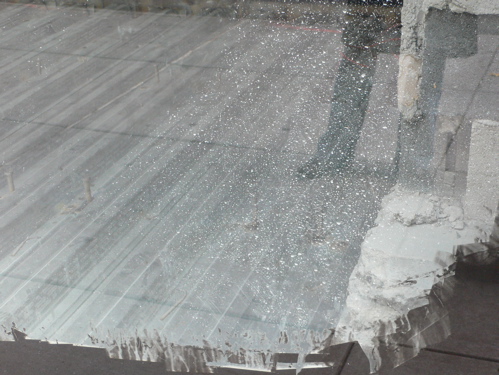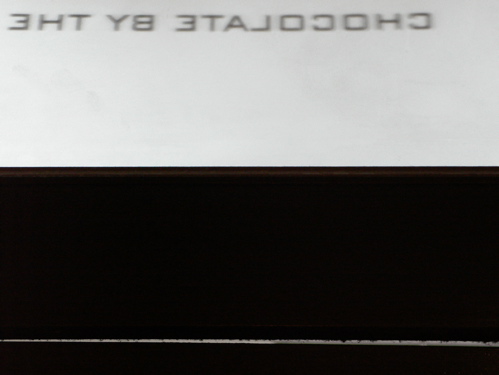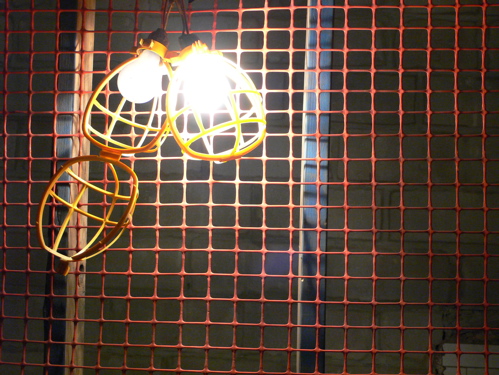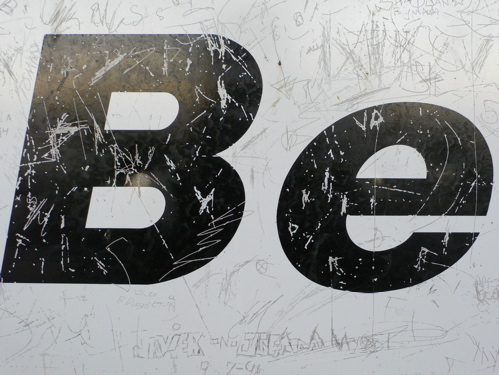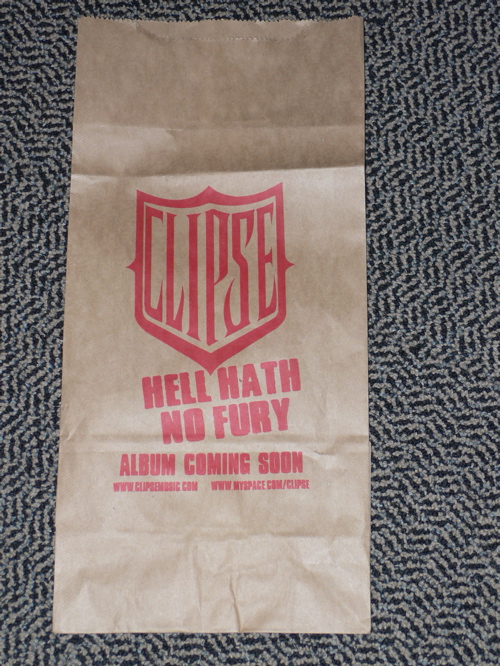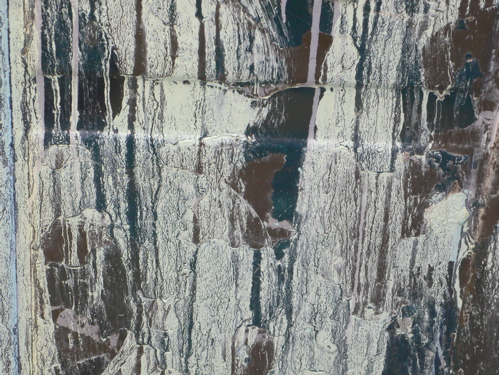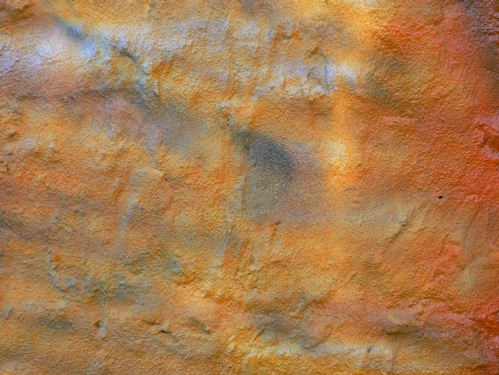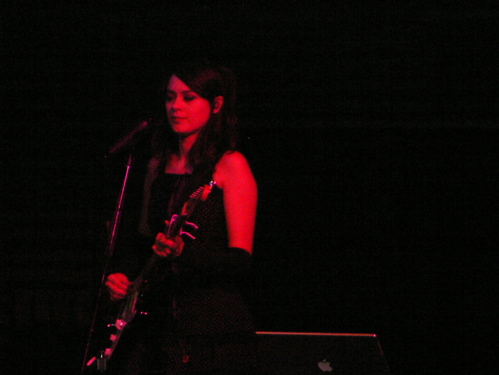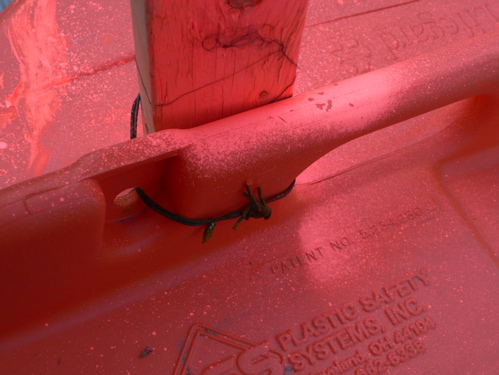November 29, 2006
NEVER TURN YOUR BACK ON A SUBMARINE
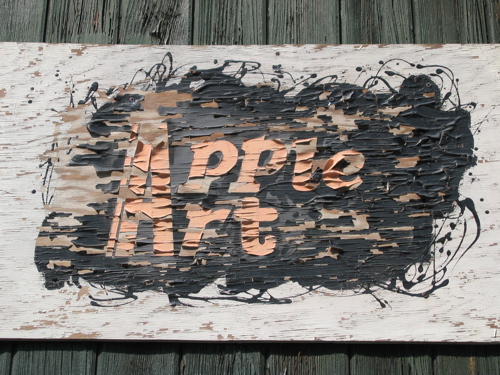
is apparently the name of this mix. That is what Dave Tompkins told me. Dave is the man who made me give up record collecting, in the same way you might give up baseball if one day, proud that you could really knock a curveball through the gap, you happened upon Rod Carew warming up in a batting cage. Dave was always nice about my Harold Alexander "find" and my "hot" soundtracks, but I knew that he knew that the Miami Bass 12-inch he had sold his car for would one day be the basis for an entire genre. ("Battery Brain!")
The mix is also here. Dave's emails don't always make a lot of sense, so I think this mix is Dave acting as guest DJ on Monk One's radio show, though I can't be sure it's a radio show. Maybe it's a podcast. You tell me.
November 27, 2006
40 BEFORE 40

I enjoy numerical coincidences, and had been hoping that my fortieth column would appear on or around my fortieth birthday. No such luck—not that we are lacking in luck around here.
November 26, 2006
TO THE POINT
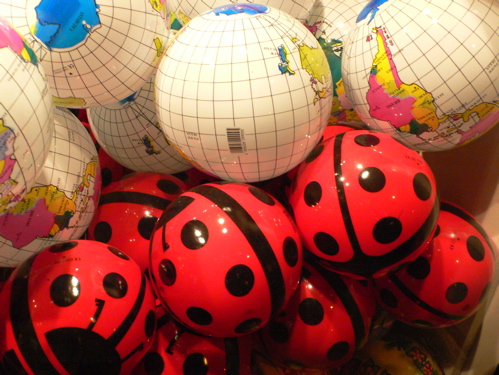
["The Milk-Eyed Mender" plays.]
"Is this a man or a lady?"
"It's a woman."
"She sounds like a baby. With no teeth."
November 24, 2006
November 17, 2006
November 15, 2006
DIAMONDS

A lovely piece by Suzy Hansen on Ellen Willis in today's Observer. Glad to see Ellen's work is not going gently into that good archive. Somebody please put out that book now. Gather all fifty-four TNY pieces, add the other rock pieces and, boom, you're done. In at number one.
November 14, 2006
JOANNA NEWSOM, WEBSTER HALL (SECOND SHOW), NOVEMBER 13, 2006
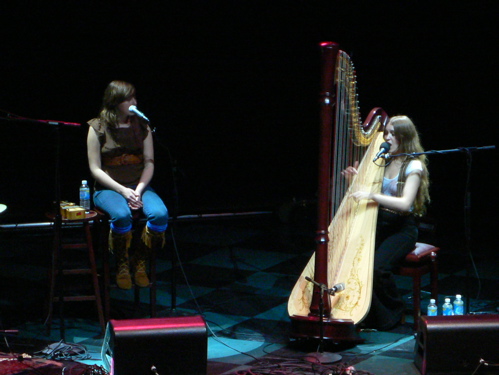
An entire forest of banana trees. Unfuckwithable, intense, sustained.
November 12, 2006
ONE TRANSFER, CONDUCTOR

Let's talk about a more important cassette transfer project. Diplo's latest Mad Decent podcast episode, entitiled "from the bronx river housing projects to the rest of the galaxy," certainly makes this project less urgent but does not, unfortunately, render it unnecessary.
In junior and senior years of high school, my Friday mornings were often pretty crispy because I had been up until two or three the previous night/morning listening to Afrika Islam's Zulu Beats show on WHBI. The tapes I made of those shows spurred my record collecting—a game I am now retired from—and served as the rough checklist I would refer to, and imitate in the absence of any solid data on the records I'd become obsessed with. ("Do you have 'Chocolate'? It goes...'Chocolate! Chocolate!'") Diplo's mix begins with a few minutes of a show I don't think I ever heard, and then goes into shows that are burned into my brain. The asides, the particular deck-to-deck looping of "Cavern," the shout-outs to people I never learned anything about, and all the pre-recorded drops: "And don't forget..." "...and that's the way you spell Zulu." "...none hotter."
There are Zulu Beat moments missing from Diplo's podcast that I'd like to see on the web some day, especially any of the "Birthday Tapes," pause-button mixes Islam made of his favorite beats, one slammed into the other, each whole concatenation a preview of the next fifteen years of hip-hop production. Also, I think many people would enjoy Red Alert's Gong Show (which was the first time I heard Red Alert's voice), and Islam's story about getting stopped for speeding. (And he played Bambataa's "Time Zone" an awful lot.)
There is a P-Brothers Zulu Beat CD from a year or two ago that compiles many of Islam's finest broadcast moments, but I assume it's hard to get now and I don't remember what's on it. Maybe they covered all of this. You know how English people are about American music. They care more about some of our moments than we do. This is why Michael Jonzun is all "Huh?" here but could probably be elected to Parliament.
November 11, 2006
R.I.P., ELLEN WILLIS
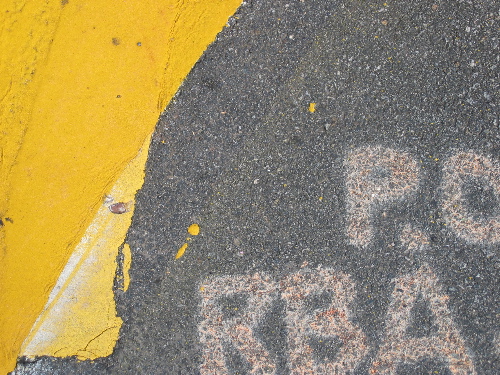
About a month ago, I emailed Ellen Willis. We had a loose plan to do a brief Q&A on the New Yorker website about her fifty-four columns, a body of work which is at the top of my Unacknowldged Hot Shit list. When we corresponded, briefly, she gave no indication that her illness existed, or was so advanced. And who would? But I wish that she had, even in code. This is a poor substitute for a real conversation with the living person.
When I was hired in 2004, I asked her out to lunch, hoping she would tell me about her time at the magazine. We had that lunch, and she did. I wish I had recorded that conversation, and that all of us had the chance to ask her some follow-up questions.
Whatever that Complete New Yorker Hard Drive costs, her forty-nine otherwise unavailable essays make it worth the outlay.
SCRITTI POLITTI, BOWERY BALLROOM, NOVEMBER 10, 2006
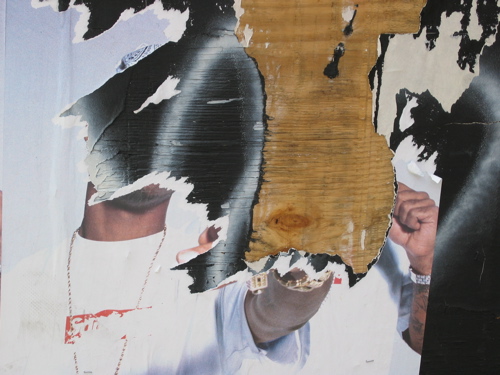
Love songs to hip-hop: 1.
Actual hip-hop songs: 3
How many of those were covers: 2.
Which "girls" appeared: "Word" and "Sweetest."
Songs from "Cupid": 2.
Oldest song: "Skank Bloc Bologna."
Second-most impressive muscial event: Rhodri Marsden playing, live, the originally sequenced (Franklin and I guessed) keyboard bass line from "Wood Beez"
Most impressive musical event: Green's singing voice.
Thing which redeemed Green's rapping: Green's singing voice.
Dudes who kept yelling for "Here Come July": 2 or 3.
Dude who really wanted to hear "Umm," but did not announce this desire: me.
November 10, 2006
1986

Last night, friends told me the trailer for "The Last King of Scotland" reminded them of an old Dolores song. I want to post MP3s of songs from the Dolores cassettes, but I can't even find them to send on to a helpful digital person. So, if anyone has the cassettes and can digitize "Amin" (or any of our songs), please send the results to frerejones AT the Google email domain. I will express my gratitude.
FAN BLADES
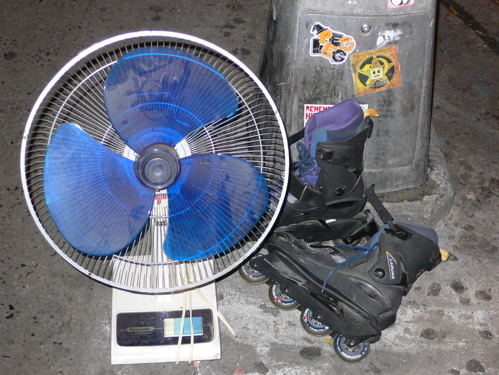
But what if it gets unseasonably warm and dude needs to get somewhere quickly? Or does he just store them there and everyone's like "Those are Kevin's. Namaste."
November 06, 2006
November 04, 2006
November 03, 2006
TORTURE CHAMBER OF COMMERCE
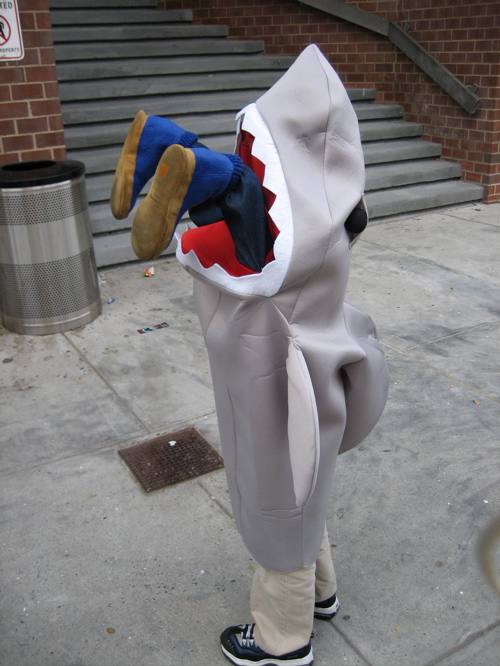
Are "light-hearted" videos like this and "deliberate" horror movies like this amputation franchise sublimated expressions of Abu Ghraib™ guilt and excitement? Or are people in their twenties just mean? And is blood just an age-old hit?
November 01, 2006
NEW YORKER DANCE PARTY, CLUB T, OCTOBER 6, 2006
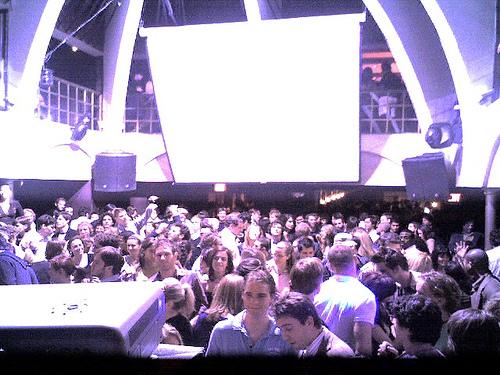
(Cell-phone photo courtesy of David Day.)
I could not take a photo of this event because I was trying to be a host. This task consisted, mainly, of doing nothing. I sat with Michael Mayer and his girlfriend, Sidonie, in the "green room," which was a room upstairs. I thought Club T would be gigantic, but it was not, which was a pleasant surprise. (Not because there are inherently bad things about small or big clubs, but the club I was imagining was too big and not full of people.) There was some free vanilla-flavored vodka, which nobody liked. The first of my only two real obligations was to find normal vodka, which required me to move several feet and "borrow" some Ketel One from a bar that was not being used.
The next task was to be concerned and ask other people to do things. Ezekiel Honig was finishing a set with his laptop. I followed Michael to the DJ booth. He looked at the turntables and said "Where are the needles?" Someone from the club said "DJs usually bring their own." Michael said that his rider made it clear he wasn't bringing needles. He didn't seem very upset. The club person whizzed away. I couldn't tell if this was run-of-the-mill stuff, or a potential car wreck. I found the club person, stressed how important the needles were, while trying not to get all Naomi Campbell about it, and went back to the booth. A different person, bearing two needles, appeared less than ten minutes later. It was impressive. Ezekiel kept going with Ableton Live. Nobody had gotten their panties in a bunch. I thanked all the people it seemed right to thank.
Then, Michael attached the needle (actually needle, cartridge and headshell) and started playing a record. It did, literally, make everyone dance (though many were already dancing). Michael cued up the second record, but had to remove the headshell. He blew on it, and replaced it. Something wasn't working, and he kept removing the headshell, blowing on the needle, and screwing it all back together. I looked at the first record. The needle was less than an inch from the gutter and I think the platter was going at 45 RPM. This could be weird. And then, after five tries, it worked. He blended the records together, and that was that.
Michael is as good as people say he is. You can buy his new mix CD, "Immer 2," but this will not make clear what he can do. Dance DJs, dependent as they may be on technology, are close to uncapturable as musicians. Plenty of musicians depend on amplification but dance DJs work in an enviroment where the speaker bins, walls and dancers form a circuit with the record selection and create a synthetic experience that defeats recording technology. Even if I had an MP3 of Michael's T performance, it wouldn't convey how the music worked and how quickly time passed while we were dancing.
